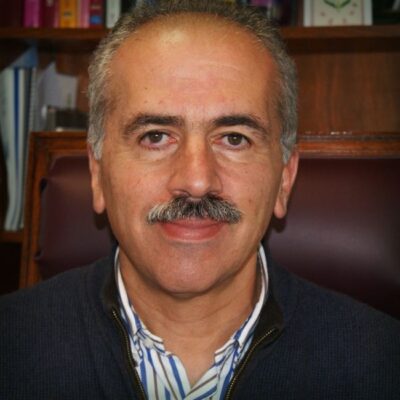
Dr. Luis Enrique Sucar Succar
ABSTRACT
Humans learn causal information from the world and use it for decision making. Robots should also be able to learn cause-effect relationships and use them to think and make decisions.
This will allow them to learn more quickly, and to be able to extrapolate what they learn to other similar tasks.
In this talk I am going to give an introduction to causal models, in particular to Bayesian causal networks, including their representation, inference and learning. I will present our work on the use of causal models in robotics, in which we show that if a robot has a certain causal domain model, the process of learning to perform a certain task can be accelerated compared to traditional reinforcement learning (RL).
I will illustrate this in learning manipulation tasks with deep RL.
In addition, I will describe our recent work in learning causal modeling and optimal policy at the same time.
BIOGRAPHY
He was born in Raleigh, United States, on May 17, 1957. He studied Electronic Engineering and Communications at the ITESM Campus Monterrey; he earned a Master’s in Electrical Engineering from Stanford University, California, and a Ph.D. in Computing from Imperial College London. He has completed research stays at Imperial College; The University of British Columbia, Canada; INRIA, France; and CREATE-NET, Italy. He has experience as a researcher and professor at the Institute of Electrical Research, Tecnológico de Monterrey and currently works in the Coordination of Computational Sciences of the National Institute of Astrophysics, Optics and Electronics (INAOE) of Puebla.
He is a member of the National System of Researchers; the Mexican Academy of Sciences; the Engineering Academy; Founding Member of the Mexican Academy of Computing; and IEEE Senior Member. In 2014 he received the 2014 TECNOS Award for the development of the Gesture Therapy system for the rehabilitation of patients with stroke and in 2016 the National Science Award in the area of Technology, Innovation and Design. He has been president of the Mexican Society of Artificial Intelligence; the Mexican Federation of Robotics; and the Mexican Academy of Computing. He is a Senior Member of the IEEE, Associate Editor of the Magazines “Computing and Systems”, “Pattern Recognition”, and “Computational Intelligence”.
His research focuses on trying to understand and model the mental capacities that allow us to reason and make decisions under uncertainty and based on that, developing intelligent systems based on software programs. To do this, he has been based on the Bayesian paradigm, under which prior knowledge is combined with the evidence obtained from the world through sensors. When the problem is very complex, the Bayesian paradigm can lead to very complicated models, which are difficult to store and solve on a computer. To face the problem of complexity, Dr. Sucar uses “probabilistic graphical models”, which basically allow to decompose a large problem into many small ones, based on the independencies between the relevant factors. By combining the Bayesian paradigm with graphical models, complex problems with uncertainty can be computationally solved.
In the field of technological development, he has participated in various projects in medical and industrial applications, including the development of a virtual rehabilitation system, technology for diagnosis and power plant operators, projects for wind prediction in wind farms, among others; he has 8 patents in Mexico and abroad.
He has more than 300 publications in journals, books and conferences and has supervised more than 80 bachelor’s, master’s and doctoral theses. His research focuses on artificial intelligence, mainly on the development of probabilistic graphical models and their application in computer vision, robotics, energy, and biomedicine.
Mexican National Science Award 2016.
